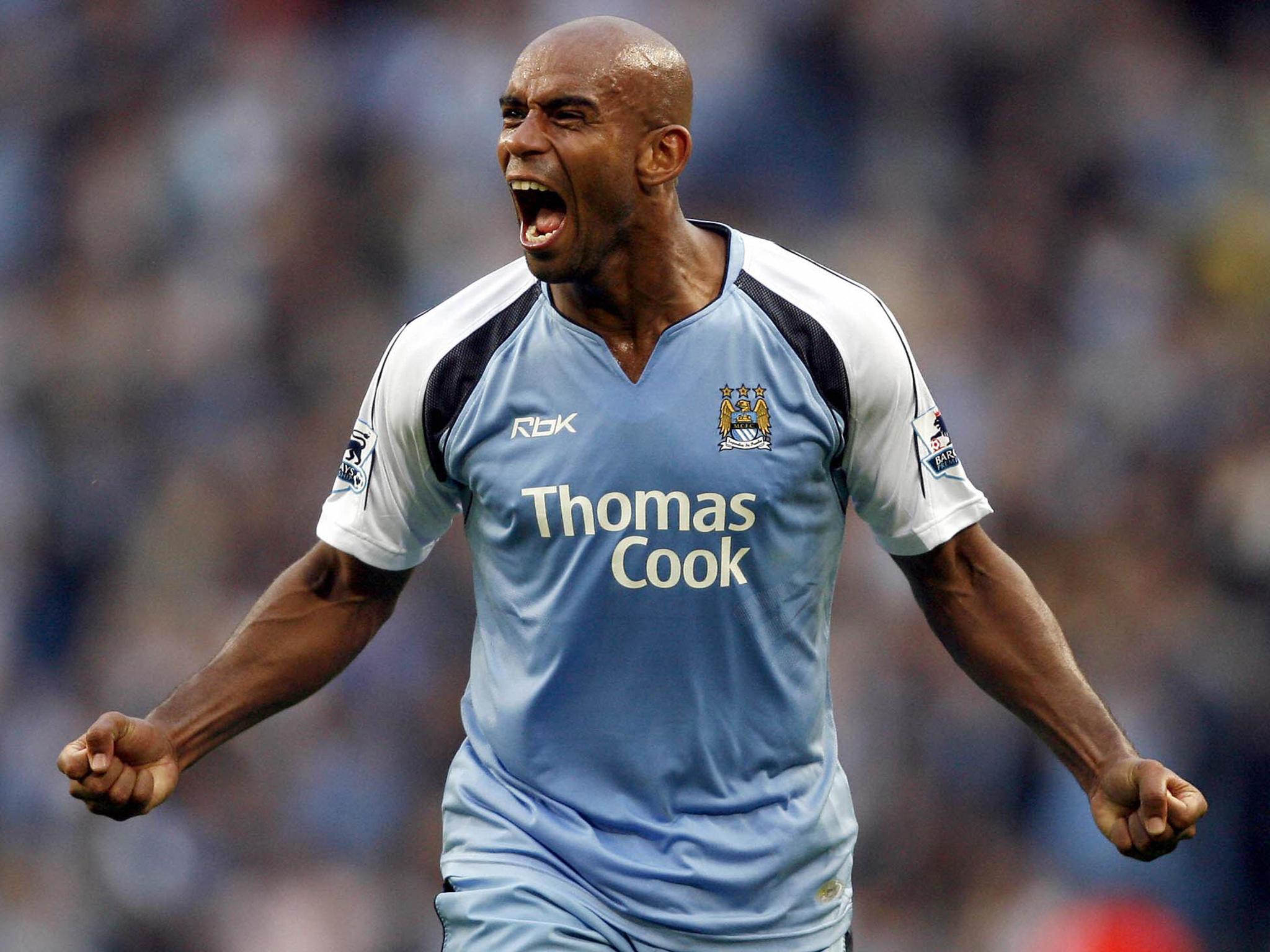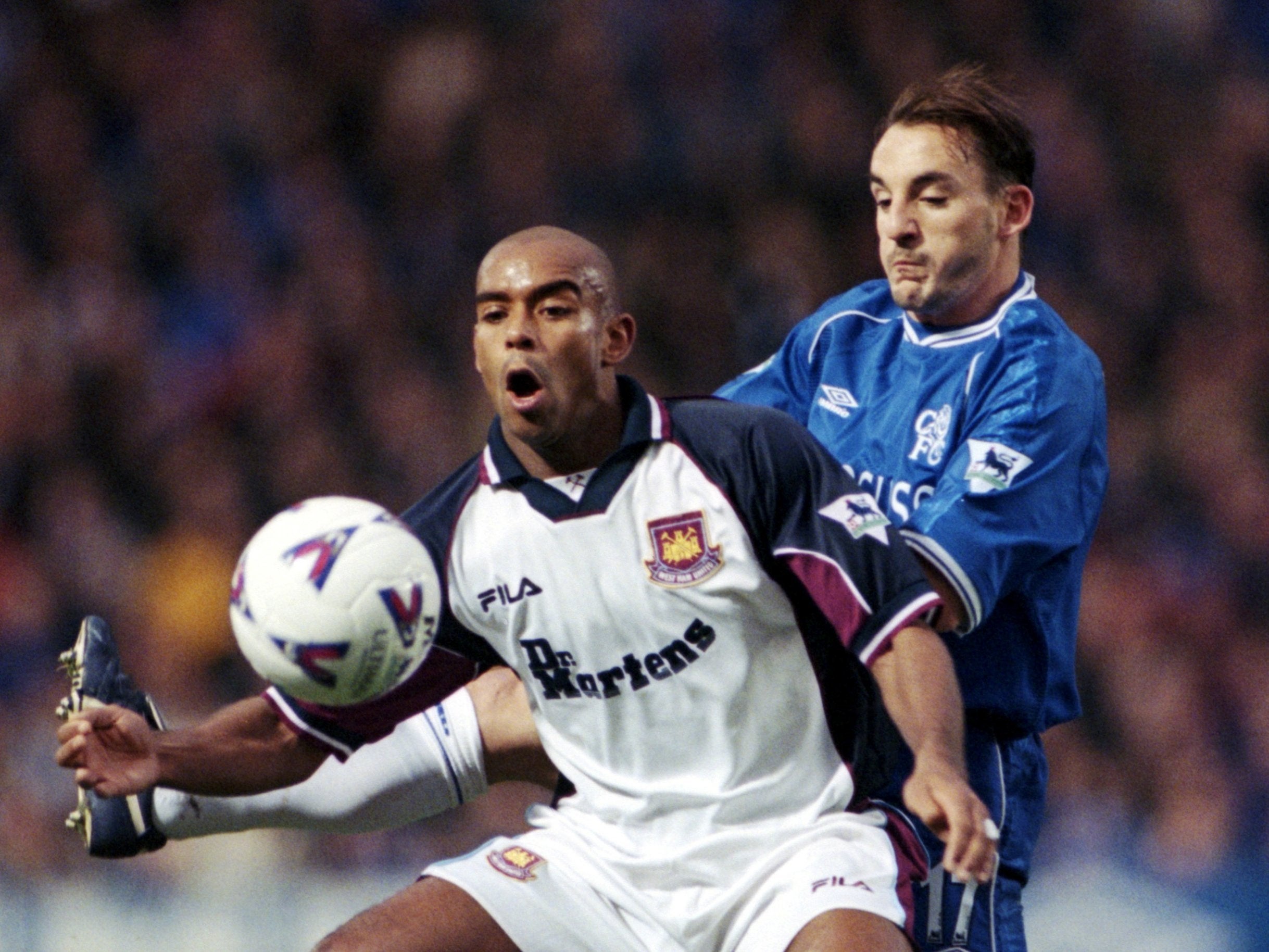Trevor Sinclair urges footballers to fight racist abuse by staying on the pitch and using it as motivation
Former Premier League star experienced racist abuse during his career, but in light of recent events he believes that walking off the pitch is not the right thing to do

Your support helps us to tell the story
From reproductive rights to climate change to Big Tech, The Independent is on the ground when the story is developing. Whether it's investigating the financials of Elon Musk's pro-Trump PAC or producing our latest documentary, 'The A Word', which shines a light on the American women fighting for reproductive rights, we know how important it is to parse out the facts from the messaging.
At such a critical moment in US history, we need reporters on the ground. Your donation allows us to keep sending journalists to speak to both sides of the story.
The Independent is trusted by Americans across the entire political spectrum. And unlike many other quality news outlets, we choose not to lock Americans out of our reporting and analysis with paywalls. We believe quality journalism should be available to everyone, paid for by those who can afford it.
Your support makes all the difference.Former England winger Trevor Sinclair has urged players who are racially abused during games to stay on the pitch and use their anger as motivation to play harder.
Sinclair, whose clubs included Blackpool, QPR, West Ham and Manchester City, believes players should also report any abuse to the match officials and relevant authorities, and then make sure that proper action is taken against the racists.
Speaking to Press Association at the awards ceremony for a schools competition run by football's anti-discrimination education charity Show Racism the Red Card, Sinclair said he always been aware of racism in the game and British society in general.
"I remember playing in the 1980s and the abuse could be horrific - it was difficult to deal with but in those days you were told to just 'man up and get on with it' and we did," he said.
"I don't think players should walk off the pitch if they are abused because that's what the racists want.
"My advice would be to through the protocol. I'd get on with the game but I'd mention it to the referee, I'd mention it to the governing bodies - Uefa if it's in Europe, or the relevant league if it's here, at what ever level.
"I'd make sure the people in charge are aware of it and I'd make sure they follow it up. But I would stay on the pitch.
"Use it as fuel to fire your performance and show these ignorant racist people that it can't affect you."
There are some, however, who believe the stoicism of Sinclair and his generation has not worked and it is time for victims of racism to show they will not stand for it by leaving the pitch.

There is also little faith in the ability or willingness of match officials and administrators to tackle the issue.
"I understand that - I don't think the punishments have been harsh enough, they've been very lenient and some of the fines that have been given out are an absolute liberty," said Sinclair.
"But I go back to the points guys like (ex-QPR and England striker) Les Ferdinand have made and that is the need for clubs, governing bodies, companies, to start embracing diversity in their boardrooms.
"If you do that, you'll have people in positions of authority who are passionate about this. Then you'll get the punishments that will show society won't tolerate this. If the right punishment is there, you can get rid of it."
Sinclair was speaking on the day the Professional Footballers' Association announced the second phase of its #Enough campaign, which saw players stage a 24-hour social media boycott last Friday.
That was in protest against the role social media has played in the recent surge in discriminatory abuse in British football, and the union's next step is to take all the evidence of abuse that it has collated and present it to the sport minister Mims Davies and the social media companies.
Facebook, which also owns Instagram and WhatsApp, contacted the PFA after Friday's boycott and a meeting is being arranged. Twitter has not yet responded to a request for a similar meeting.
The PFA's equalities education executive is Jason Lee, who played more than 600 league games for 20 clubs in a 23-year career, and he is hoping the social media firms are ready to listen.
Lee was also attending the Show Racism the Red Card event at Manchester City on Thursday and he told the Press Association the excuse he had heard from Facebook and Twitter was that many of the messages that were flagged up to them were deemed to be insufficiently offensive to trigger intervention.
"Who makes those decisions? That's why you need more diversity in organisations, you need people who can relate to these situations," said Lee.
"At the moment, you've got people making decisions on things they clearly don't understand.
"Where's their moral compass? Why are they not acting when they see these messages posted? Why are they waiting for someone to come in and complain?
"I shouldn't have to complain about it. That's a cop out. We all know that social media companies prosper because we're all on there, they know that.

"But if we were all to shut down and stay off social media - I know how hard that is, it was hard last week - you will affect people's revenue and they will take it seriously.
"Footballers are in a position now where they are really able to affect things. They could not do any media, they could not go training, they could not do this or that.
"They are the pop stars in this country, they are role models and can set the right example and that might mean taking a stand against racism. Players have told me they are willing to do that."
PA
Join our commenting forum
Join thought-provoking conversations, follow other Independent readers and see their replies
Comments